Business & Management
International Collaboration Sparks Innovation in Statistical Methods at Makerere University
Published
2 years agoon
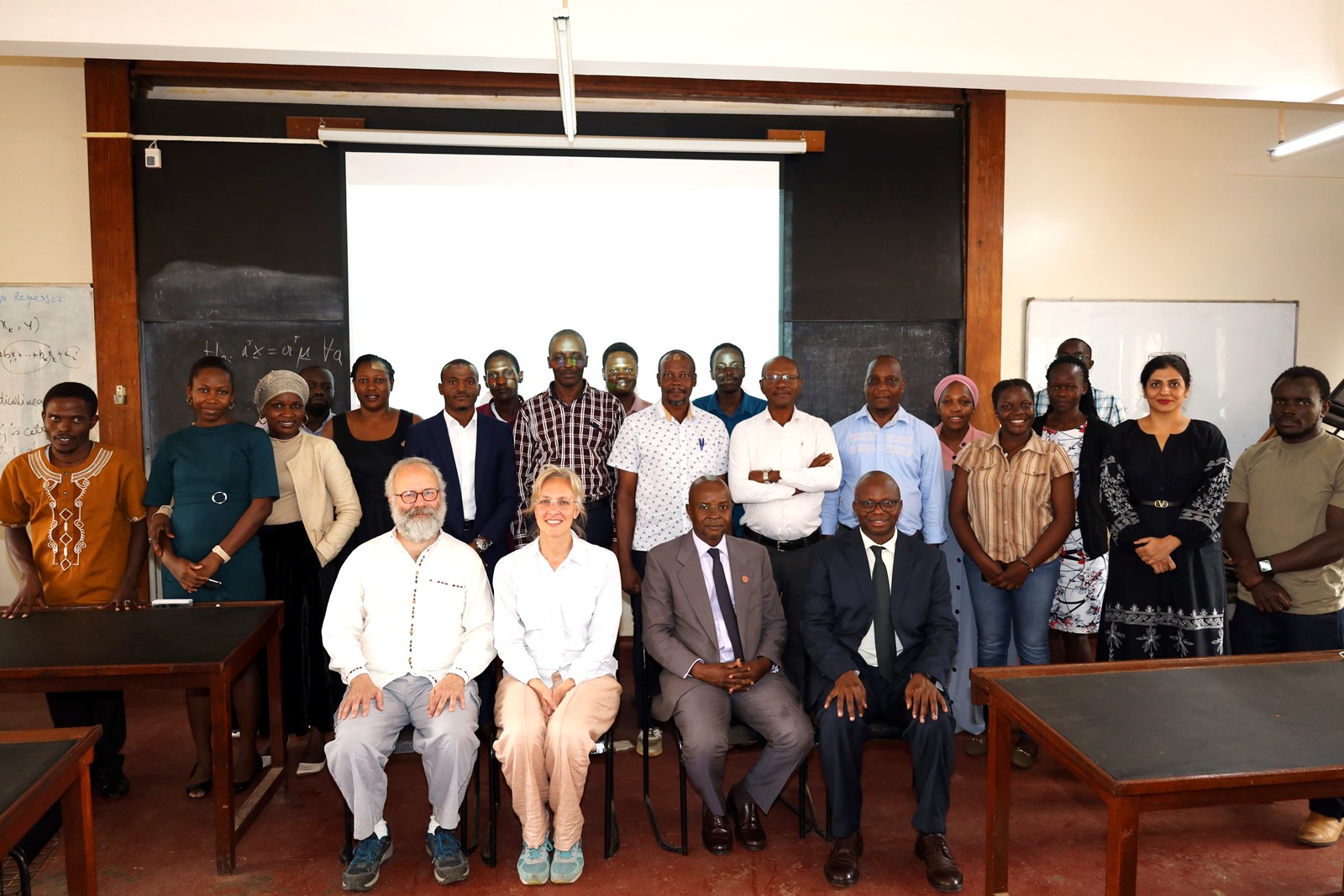
In a remarkable display of international collaboration, Makerere University Kampala, Uganda, recently hosted a dynamic workshop on multivariate statistics and time series analysis. This event, held from June 11 to June 20, 2024, brought together academic staff and students from Makerere‘s School of Statistics and Planning, alongside esteemed professors from the University of Padova, Italy. Funded by the Erasmus Mundus Plus program, this workshop exemplifies the transformative potential of global partnerships in higher education.
The Erasmus program, a pillar of the European Union’s educational initiatives for over 35 years, expanded its reach beyond Europe in 2015. Through the International Credit Mobility (ICM) scheme, Erasmus+ has enabled students and staff from around the world to engage in enriching educational exchanges. Makerere University‘s participation in the ERASMUS+ KA171 program aligns seamlessly with its 2020-2030 Strategic Plan, aiming to foster a research-led, responsive university with a versatile workforce.
The collaboration between Makerere University and the University of Padova, rooted in a Memorandum of Understanding (MOU), underscores a commitment to academic exchange and innovation. This partnership has already seen three graduate students from Makerere—two Master of Statistics students and one PhD candidate—embark on transformative research experiences at the University of Padova. Additionally, academic staff from Makerere have engaged in reciprocal visits, fostering a vibrant exchange of knowledge and expertise.
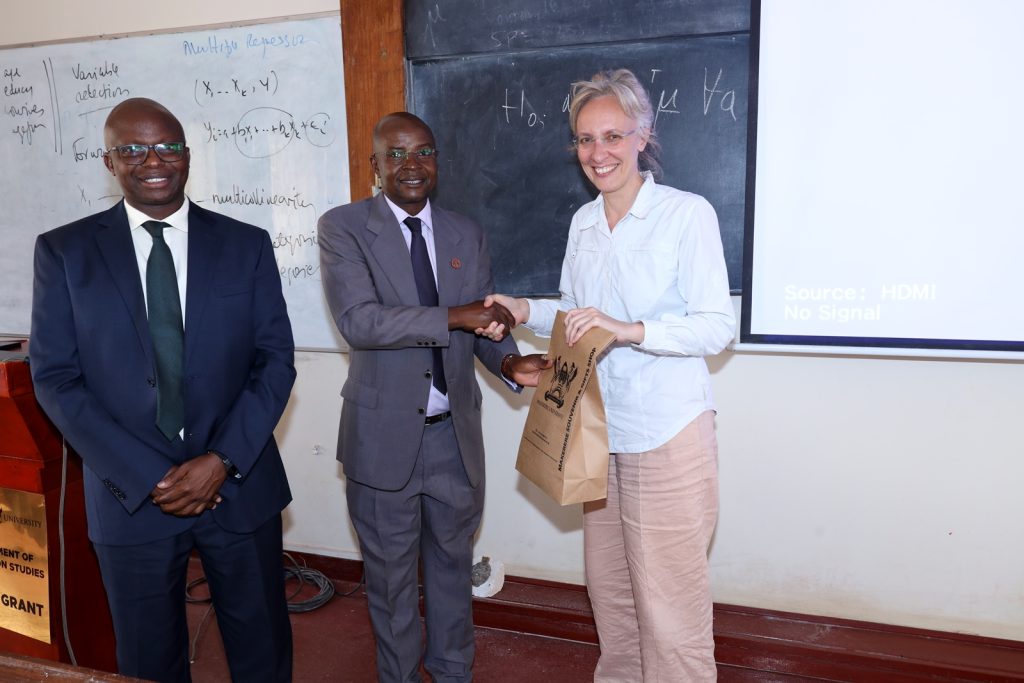
The workshop featured intensive training modules led by distinguished professors from the University of Padova. Prof. Bruno Scarpa, an expert in multivariate statistics, and Prof. Mariangela Guidolin, a renowned scholar in time series analysis. The two delivered comprehensive sessions designed to elevate the research capabilities of Makerere’s academic community. Coordinated by Dr. Felix Wamono, the training aimed to reinvigorate the teaching and application of these advanced statistical methods within the university.
Participants included 20 individuals—ten academic staff and ten graduate students—drawn from the Departments of Statistical Methods & Actuarial Science (SMAS), Planning and Applied Statistics, and Population Studies. For over eight days, attendees engaged in rigorous morning sessions from 9:00 AM to 1:00 PM, followed by collaborative afternoon discussions focused on enhancing teaching strategies and exploring new research avenues.
The workshop’s impact extends beyond immediate academic enrichment. It has fostered stronger networks between Makerere University and its international partners, paving the way for future collaborations. Dr. Saint Kizito Omala, former chair of the Department of Statistical Methods and Natural Science and a key advocate for international partnerships, emphasized the significance of these exchanges. His efforts have not only facilitated the current workshop but also supported ongoing student placements and collaborative research projects.
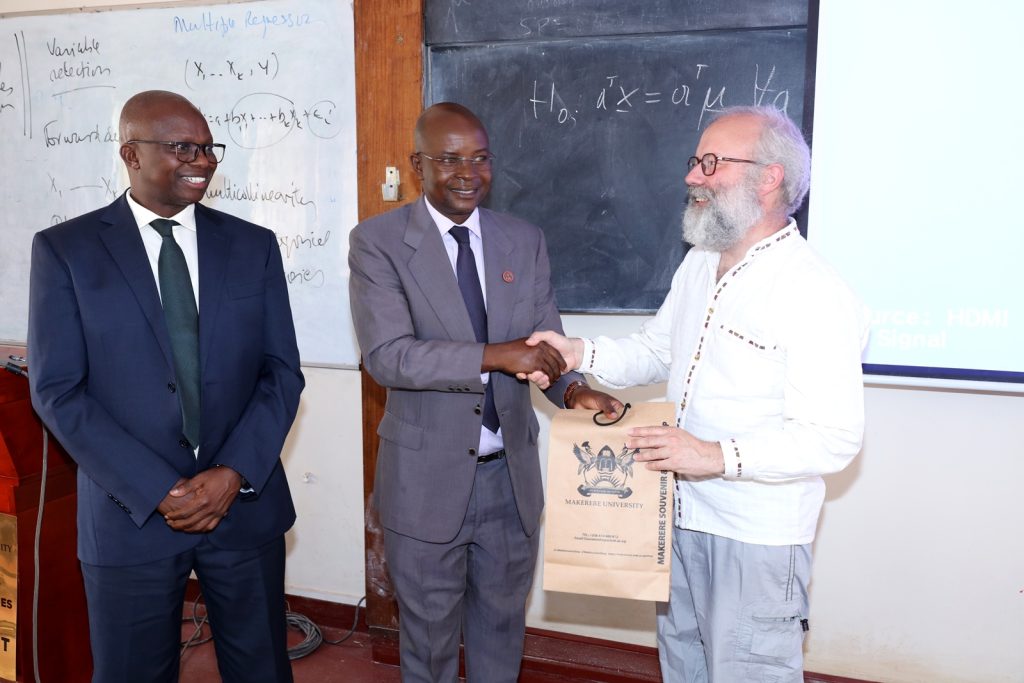
One notable outcome of these collaborations is a published paper co-authored by Richard Turagilize from the Department of Planning and Applied Statistics and Professor Basti from Italy. Such achievements show the tangible benefits of these international engagements, which enhance the research profiles of both institutions and contribute to the global academic community
As the workshop concluded, Principal Professor Edward Bbaale expressed profound gratitude to the visiting professors and commended the participants for their active involvement. He highlighted the importance of equipping Makerere University with the right tools for meaningful research training, noting that the institution’s commitment to graduate training is pivotal for its future.
The Deputy Principal and Dean of the School of Statistics congratulated the research team upon winning the grant, saying that it was a testament to their hard work and dedication. He also emphasized the need for continued collaboration with international partners to further enhance research capabilities at Makerere University.
The Erasmus+ KA171 program’s support for this workshop has not only strengthened the academic capacities of Makerere University but also reinforced its strategic vision of internationalization and research excellence. The university looks forward to continuing its fruitful partnership with the University of Padova, anticipating further advancements in statistical research and education. In the spirit of collaboration and innovation, Makerere University stands focused to make significant strides in the advancement of statistical methods, contributing to the global academic community and enhancing its own research-led mission.
You may like
-
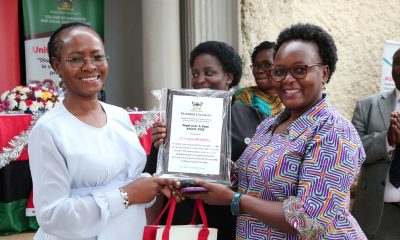

Dr. Pamela Khanakwa Honored for Steering Record 18 PhD Candidates for the Mak 2026 Graduation
-
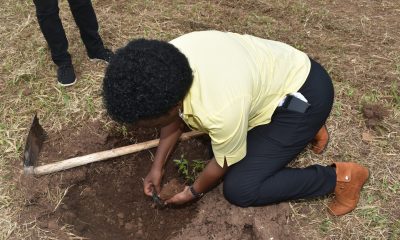

Call for Applications: QCF Postdoctoral Research Fellowships
-
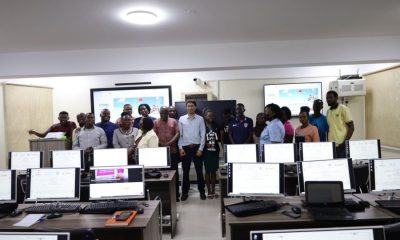

CoCIS CIPSD Short Courses Jan-Mar 2026
-


Kampala at a Crossroads: What New Research Reveals About Mobility, Governance, and the City’s Public Health Risks
-
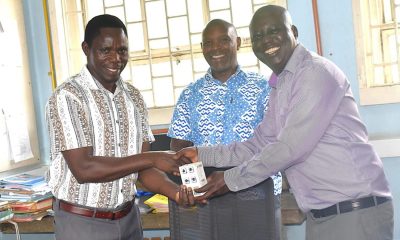

Dr Oruru Bosco Appointed Acting Head of the Department of Physics
-


Advert: Admissions for Diploma/Degree Holders under Private Sponsorship 2026/27
Business & Management
Dr. Aisha Nanyiti is IEA’s Featured Economist for Jan 2026
Published
3 weeks agoon
January 8, 2026By
Mak Editor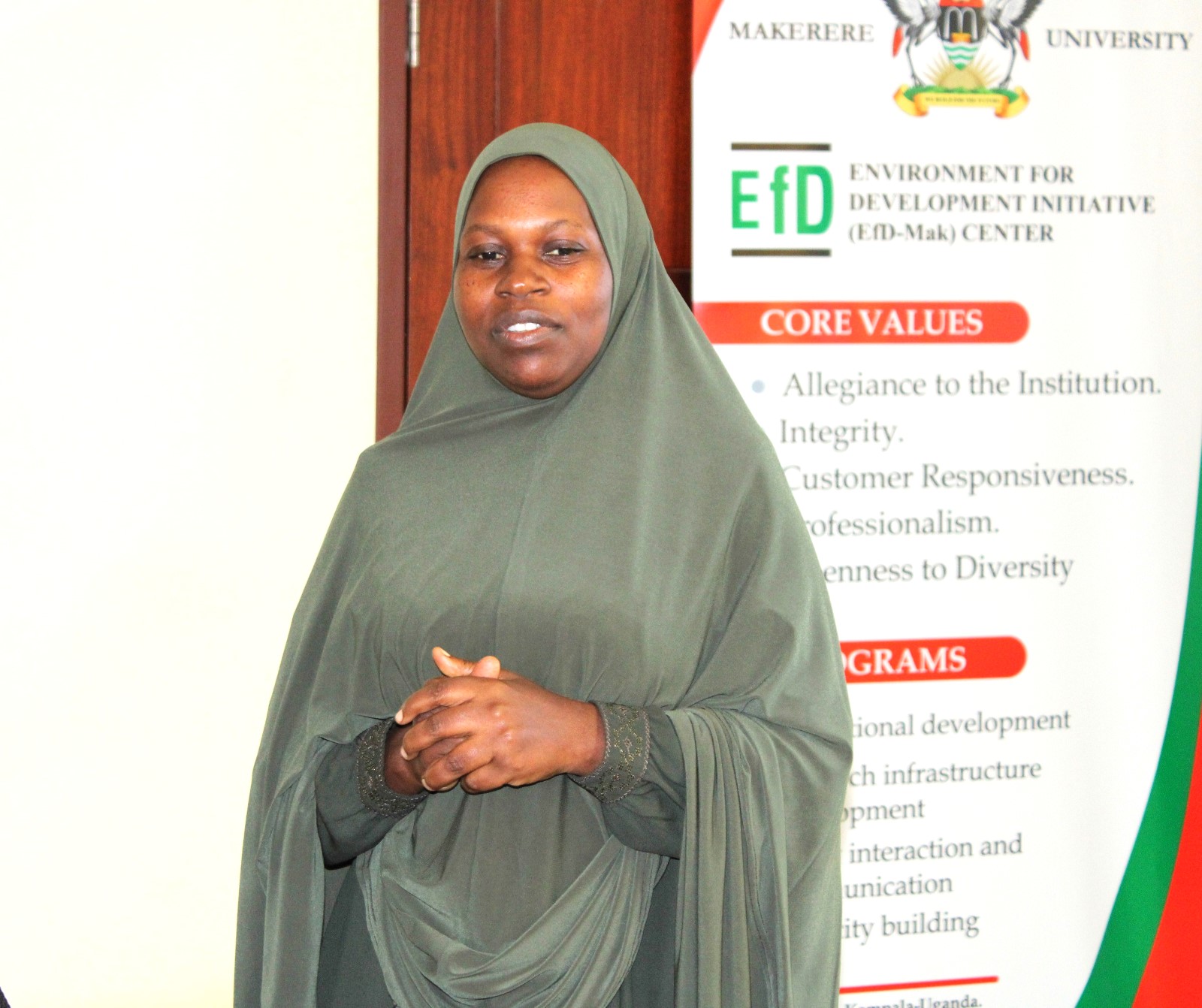
Dr. Aisha Nanyiti is a Lecturer at Makerere University’s School of Economics. She holds a PhD in Development Economics from Wageningen University, The Netherlands. Her research focuses on impact evaluation, causal inference, and behavioural economics, with expertise in Randomized Control Trials (RCTs), Lab‑in‑the‑Field experiments, and survey-based causal analysis. Aisha studies labour and financial markets, gender and women’s empowerment, poverty, and clean energy adoption, bridging rigorous evidence with real-world policy impact. She is also a Research Fellow at the Environment for Development Initiative (EfD‑Mak Centre), contributing to inclusive development and evidence-based policy in East Africa. She is the International Economic Association (IEA)’s featured economist for January 2026.
Business & Management
EfD Uganda Marks 2025 Milestones, Sets Strategic Path for 2025–2029
Published
1 month agoon
December 20, 2025By
Jane Anyango
Kampala, Uganda – December 19, 2025 — The Environment for Development (EfD) Uganda Centre at Makerere University has taken stock of its 2025 achievements and outlined its strategic direction for 2025–2029, with a strong focus on energy transition, climate change, and sustainable natural resource management.
The reflections were shared during the Centre’s annual end-of-year celebration, which brought together members of the EfD Steering Committee, deans from the School of Economics and the School of Agricultural Sciences, government officials, private sector actors, civil society organisations, researchers, and students.
Interdisciplinary Foundation Strengthens Impact
Addressing stakeholders, EfD Uganda Director, Professor Edward Bbaale, highlighted the Centre’s progress in institutional development, research, policy engagement, and capacity building. While acknowledging challenges encountered during the year, he noted that these provided valuable lessons as the Centre transitions into a new strategic phase under the EfD Strategic Plan (2025–2029).
Prof. Bbaale underscored the Centre’s unique positioning within Makerere University, noting that it is jointly anchored in the School of Economics and the School of Agricultural Sciences. This interdisciplinary foundation, he said, enables EfD Uganda to address complex development challenges such as energy transition, climate change, water resources, forestry, biodiversity, and agriculture from a holistic perspective.
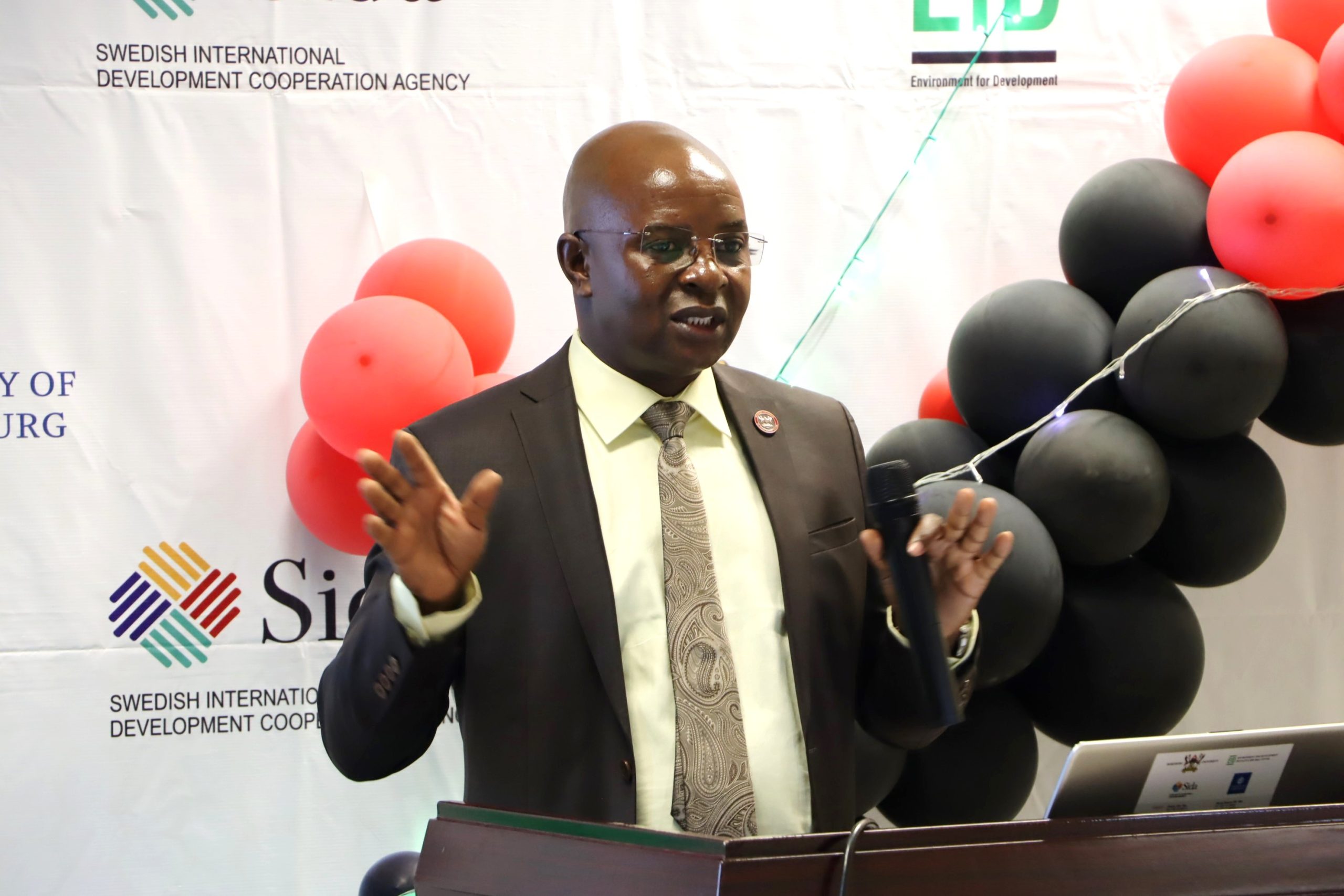
“This approach aligns with Makerere University’s policy on research institutes and reflects global trends that increasingly demand cross-disciplinary collaboration,” he said.
He further highlighted existing academic synergies, with PhD students in Economics and Agricultural Economics sharing coursework, and announced the launch of a Master of Science in Environment and Natural Resource Economics, recently approved by the National Council for Higher Education. The programme, jointly developed by faculty from both schools, is expected to strengthen training in environmental economics and natural resource management.
Strategic Direction for 2025–2029
Prof. Bbaale unveiled the Centre’s strategic plan for 2025–2029, anchored on six thematic areas: energy transition; climate change adaptation and mitigation; climate-smart agriculture; water resources management; forestry and biodiversity; and environmental quality.

He noted that climate change remains a cross-cutting issue across all themes, adding that EfD Uganda will continue to work closely with stakeholders to ensure its research informs national policy and practical interventions.
Over the next five years, the Centre’s research will focus on land use and biodiversity conservation, climate-smart agriculture, climate change adaptation and mitigation, and energy transition-areas expected to generate evidence-based solutions for Uganda and the wider region.

Key stakeholders identified for collaboration include the National Planning Authority, the Ministry of Finance, Planning and Economic Development (Climate Finance Unit), the Ministry of Agriculture, Animal Industry and Fisheries, the Ministry of Water and Environment, the Ministry of Energy and Mineral Development, and district local governments.
Major Achievements in 2025
Prof. Bbaale reported that the Centre concentrated its efforts on the three pillars of Makerere University: research, policy engagement, and training.
Policy Engagement
The Centre organised two high-level dialogues on climate-smart agriculture and a policy dialogue on e-mobility under the Inclusive Green Economy (IGE) programme.
“We chose e-mobility because it is a green mode of transport,” Prof. Bbaale said. “Through the IGE programme, we worked with senior civil servants and policymakers to explore how Uganda can transition to a greener economy.”

The programme also facilitated cross-country peer learning among Ethiopia, Tanzania, Kenya, Rwanda, and Uganda. He cited Rwanda’s rapid electrification of motorcycles through taxation and subsidies, and Tanzania’s success in universal rural electrification, as key lessons.
Capacity Building
The Centre conducted more than ten training sessions for fellows, researchers, policymakers, and graduate students. It also recruited a funded postdoctoral fellow Dr. Gemeda Olani Akuma. from Ethiopia, to work on natural capital issues.
“Postdoctoral fellows are critical to knowledge generation,” Prof. Bbaale noted. “If Makerere strengthens its postdoctoral programme, our research output will more than triple.”
He referenced benchmarking visits to South African universities with strong postdoctoral systems, noting that Makerere is steadily moving toward becoming a research-led institution.
New Projects and Institutional Growth
EfD Uganda launched five new projects and expanded its institutional partnerships during the year. These included Sida-funded initiatives, a consultancy with GIZ, the Centre’s first MakRIF-funded project, and grants from the Gates Foundation and the Carnegie Corporation.
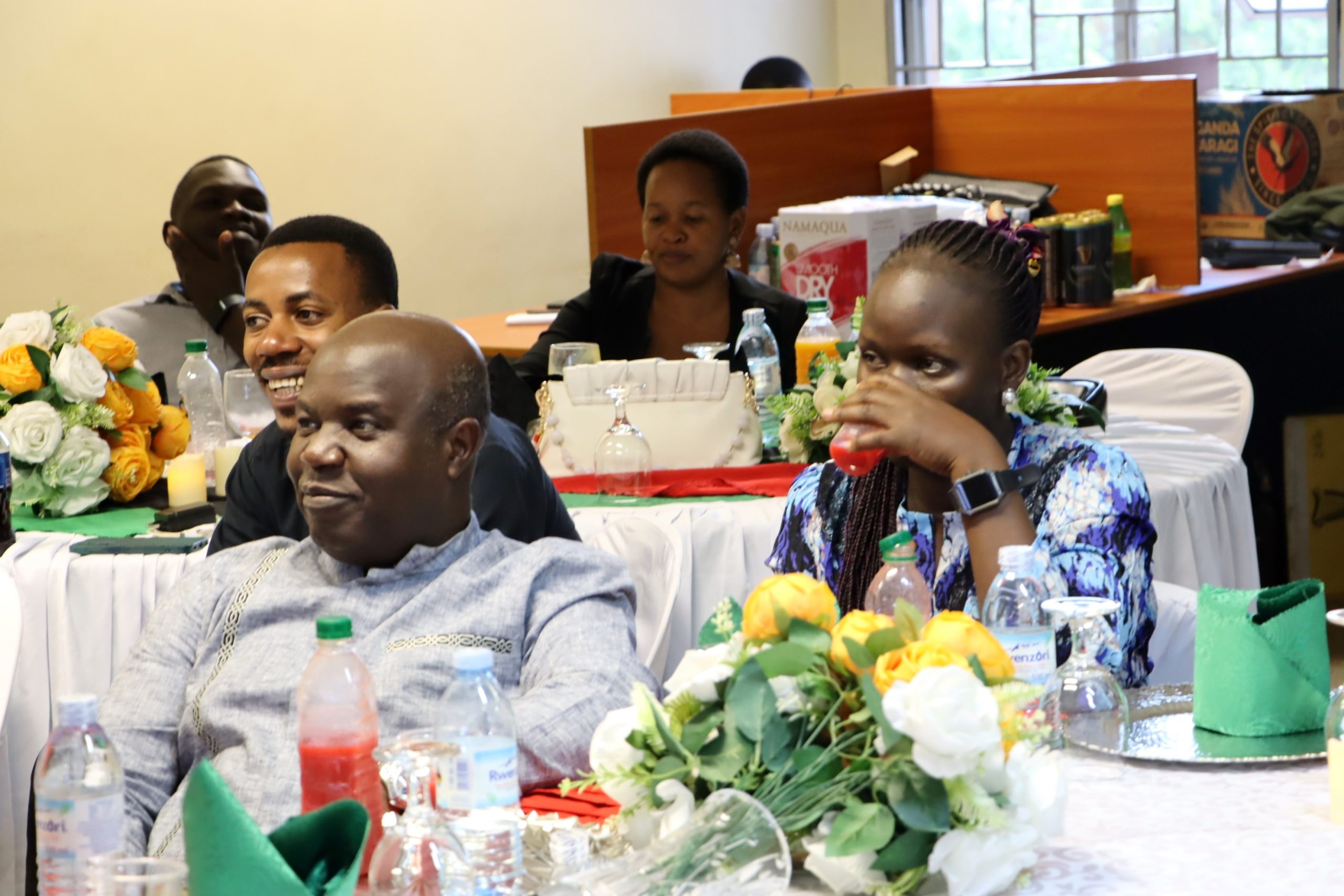
In institutional development, the Centre inaugurated 13 new advisory board members, strengthening governance and oversight. Prof. Bbaale also introduced the Centre’s core staff, praising their dedication and commitment to capacity building, including the mentorship of interns and teaching assistants some of whom have since joined institutions such as the Bank of Uganda.
Strengthening National and International Engagement
The Centre deepened collaboration with national institutions, including the National Planning Authority, the Ministry of Finance, Parliament, and the National Water and Sewerage Corporation. Among ongoing initiatives is a study aimed at improving bill payments at the utility to unlock new investments and service improvements.
EfD Uganda is also working with district local governments to build capacity in environmental valuation and natural capital accounting, supported by MakRIF funding from the Government of Uganda.. Trainings were conducted for districts in central Uganda and in Fort Portal.

At the international level, the Centre hosted visiting scholars, including Prof. Edwin Mchapondwa from the University of Cape Town, who trained government officials on community-based conservation, and Prof. Mark Purdon from the University of Montreal, who launched a book on carbon markets.
EfD’s Natural Capital Accounting Model Adopted by Government
A major highlight was the development of a natural capital accounting model, supported by GIZ and now adopted by the Ministry of Water and Environment. The Excel-based MoneyCap model, developed in collaboration with the Ministry of Finance, UBOS, and the National Planning Authority, supports policy assessment by comparing investment scenarios in natural capital.
“This places us at another level,” Prof. Bbaale said, noting that the model aligns with global climate finance discourse and Africa’s emerging coalition of finance ministers for climate action.

Prof. Bbaale warned that Uganda’s agriculture sector must urgently adapt to climate realities, citing erratic rainfall and rising temperatures. He stressed that climate-smart agriculture is critical to safeguarding livelihoods and food security.
The Centre also celebrated the graduation of a new cohort of Inclusive Green Economy Fellows, supported by Sida, and announced five new grants, including a Carnegie-funded project on household and SME energy efficiency and a grant for climate-sensitive macroeconomic modelling and the Makerere Research and Innovation Fund (MakRIF) from the Government of Uganda
Commitment to Policy-Relevant Research
In his concluding remarks, Prof. Bbaale reaffirmed EfD Uganda’s mission to generate research that delivers practical solutions for policymakers and communities.

“Our work asks a fundamental question: how much natural capital are we depleting in the pursuit of growth?” he said. “That is the frontier we are working on.”
He thanked the Centre’s team for their dedication and contributions throughout the year.
Centre Reaffirms Commitment to Collaboration
Dr. Peter Babyenda, Policy Engagement Specialist, reaffirmed EfD Uganda’s commitment to collaboration with policymakers, academia, civil society, and the media.
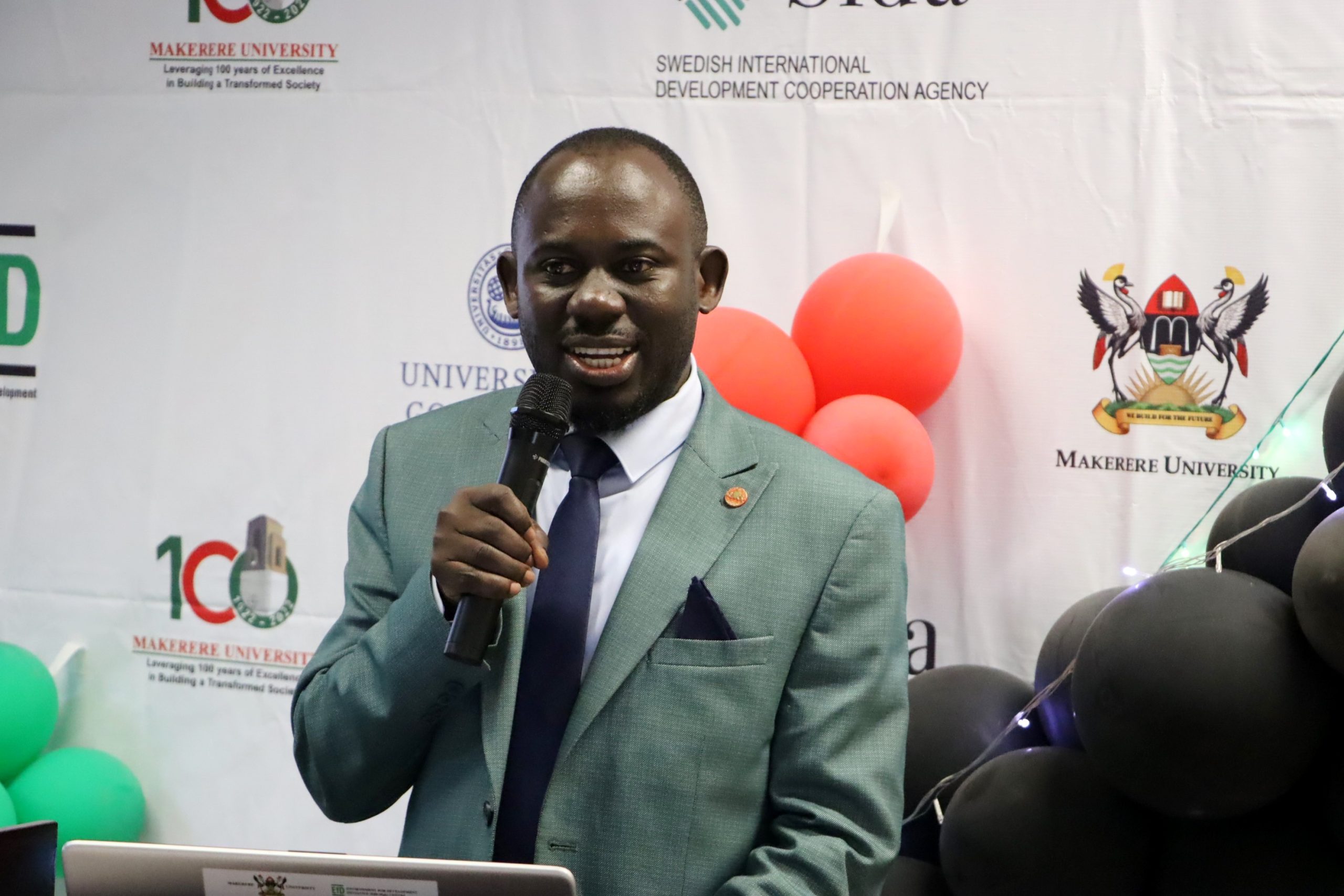
“Policy engagement includes working with the media,” Dr. Babyenda said. “We remain open to partnerships and invite stakeholders to engage with us.”
He thanked participants for attending the annual reflection event and encouraged continued networking.
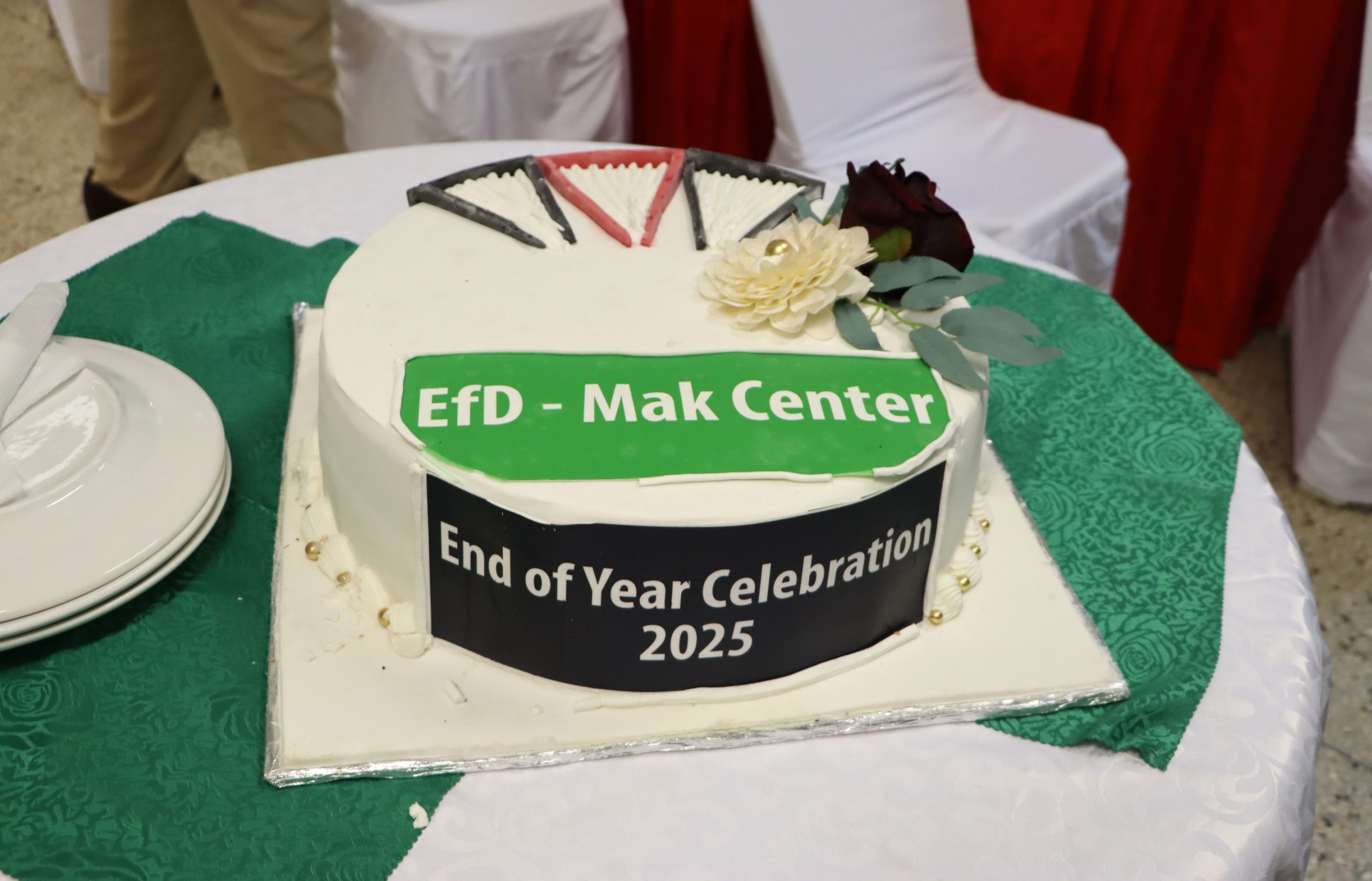
Jane Anyango is the Communication Officer, EfD-Mak Centre
Business & Management
Makerere University CoBAMS Staff celebrate 2025 achievements
Published
1 month agoon
December 19, 2025
December 18, 2025 – Coming after the successful completion of the examination season, and as the year comes to an end, the afternoon, evening and night hours of 18th December 2025, presented the best opportunity, to staff to reflect on the 2025 College of Business and Management Sciences (CoBAMS) achievements in a relaxed environment.
The ever-green Makerere University Guest House gardens provided comfort as staff continued to enjoy this lovely space situated on the Makerere University Main Campus.
The event brought together the Principal, Deputy Principal, Deans of the respective Schools, Heads of Department, academic, administrative, technical and support staff, as well as guests, in a mix of celebration, networking, and recognition.

The end of year staff get-together provided a platform to strengthen collegial relationships, and reflect on the College’s future direction. In the true sense of networking, the event also featured dance competitions amongst staff.
Recognition of CoBAMS staff who received the Vice Chancellor’s Excellence Awards 2025

A key highlight of the event featured recognition of the ten (10) members of staff from CoBAMS who received the Vice Chancellor’s Excellence Award 2025. These included: Early Career Scholar Category-Namugenyi Christabellah and Dr. Richard Ssempala, Mid-Career Scholar Category-Dr. Peter Kisaakye, Dr. Anthony Tibaingana, Dr. John A. Mushomi, and Dr. Kasimu Ssendawula, Senior Career Scholar Category-Dr. Stephen O. Wandera, and the Best Teachers Category-Dr. Patricia Ndugga, Dr. Faisal Buyinza and Mr. Fred Kasalirwe.
Presenting the CoBAMS Awards amidst applause from members of staff, the Deputy Vice Chancellor (Academic Affairs)-Prof.Sarah Ssali flanked by the Deputy Principal of the College, Associate Professor James Wokadala read a special message: “Your dedication elevates the standards of the College of Business and Management Sciences and brings distinction to Makerere University.”
Collective Achievements and Strategic Priorities

Professor Edward Bbaale, Principal of CoBAMS, in his end-of-year message, acknowledged the dedication of all staff and their contributions to the college’s success. “I sincerely thank all colleagues across our academic, research, administrative, and support units for your relentless dedication to advancing the mandate of the College. Your collective efforts remain the backbone of our success and institutional resilience,” he said.
Prof. Bbaale highlighted notable achievements in research and publications, congratulating staff who received the Vice Chancellor’s Excellence Awards and Best Teacher Awards. “These achievements reflect individual distinction and collective pride for our College. I encourage you to sustain this excellent performance,” he said. He further recognised faculty who secured research grants from Mak-RIF, international development partners including the Gates Foundation, UN-PAGE, GGGI, the World Bank, and Erasmus+, noting that such successes reflect growing global trust in CoBAMS scholarship.
The Principal underscored the college’s role in fostering institutional growth and partnerships. “I appreciate colleagues who have initiated and advanced Memoranda of Understanding with domestic and international partners. These platforms strengthen relevant academic training, impactful research, and policy engagement,” he said.
He highlighted new academic programs responsive to Uganda’s economic and societal needs, emphasising the college’s forward-looking and development-oriented approach.
Prof. Bbaale praised initiatives promoting staff welfare and cohesion, including the CoBAMS Physical Fitness Programme and the Mak-CoBAMS SACCO.
On infrastructure development, the Principal noted, “Government has allocated resources to commence the CoBAMS Infrastructure Expansion Project, and the University Council has approved two strategically located plots of land for its implementation. We shall actively engage the design consultant to ensure the buildings meet our teaching, research, innovation, and policy-engagement needs.”
He concluded his remarks by acknowledging life’s challenges alongside successes, extending condolences to staff who lost loved ones in 2025 and seasonal greetings: “As we step into 2026, I wish you and your families a year filled with God’s abundant blessings, good health, professional fulfilment, and personal joy. Merry Christmas and a Happy New Year to all.”
DVC Academic Affairs praises Research, Innovation, and Integrity
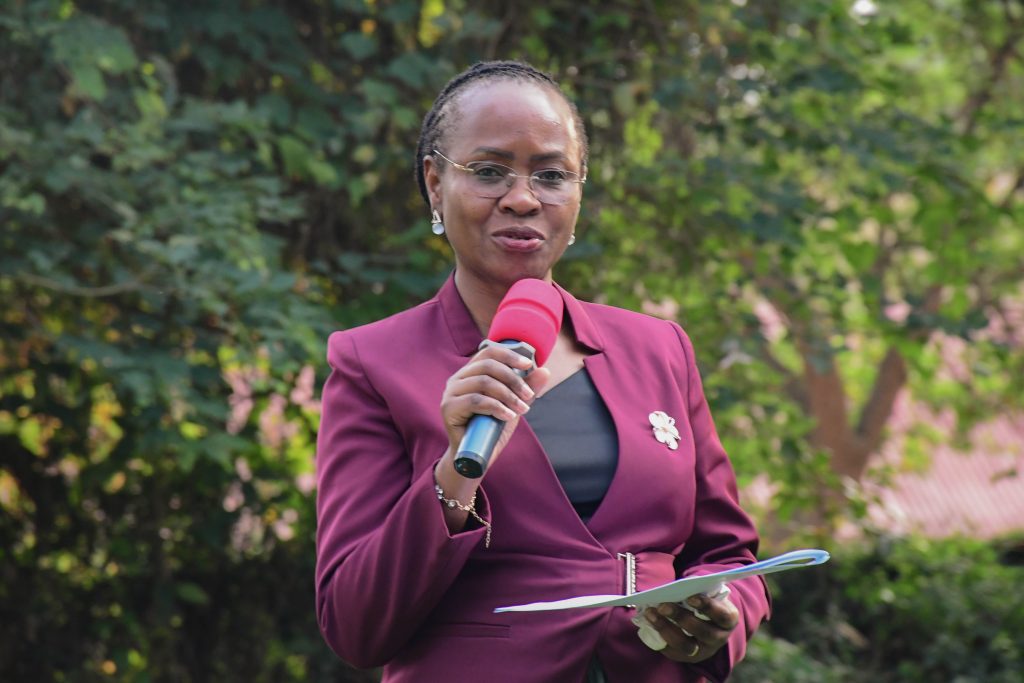
The Deputy Vice Chancellor for Academic Affairs, Professor Sarah Ssali, praised CoBAMS for its contribution to Makerere University’s strategic goals.
She extended warm greetings from the university management, including the Vice Chancellor, and underscored the importance of every staff member’s role. “Whatever role you play, you are adding a brick to this institution, just as those before us did,” she said.
Prof. Ssali highlighted the college’s research-led initiatives, emphasizing the importance of postgraduate and doctoral programs as a pipeline for academic excellence. “I commend CoBAMS for taking this seriously. Your work reflects the university’s strategic direction and internationalisation,” she said.
She noted the recent launch of the CoBAMS Working Paper Series and encouraged its development into four journals in economics, business, statistics, and planning in the near future. “This will allow graduate students to actively contribute, mentoring the next generation of scholars while strengthening Africa’s knowledge production and decolonising knowledge,” she explained.
The DVC Academic Affairs acknowledged CoBAMS for innovative approaches to research and value addition. “During the Entrepreneurship Expo, your work with coffee demonstrated how one thematic area can generate multiple products—from coffee oil to bath scrubs—showing creativity and value addition. Similarly, demography and population studies contribute crucial expertise, from census data to electoral processes,” she said.
Prof. Ssali encouraged the college to document and develop indigenous knowledge systems. “Your role as a college is to study local economic models, explore African-informed business and economic practices, and produce scholarship that reflects local realities,” she said.
She congratulated faculty members who secured research grants, published in peer-reviewed journals, or served as editors, noting that these achievements reflect both individual excellence and the academic culture of CoBAMS.
Reflecting on the Professor Emmanuel Tumusiime-Mutebile Centre of Excellence at Makerere University and the research promoted by the Tumusiime Mutebile Foundation, Prof. Ssali called for rigorous development of the initiative. “While research chairs focus on individual scholarship, Centres of Excellence build pipelines of knowledge for future generations, preserving the legacy of scholars namely Dr Mutebile in monetary policy, finance, and banking,” she said.
Networking and Teamwork
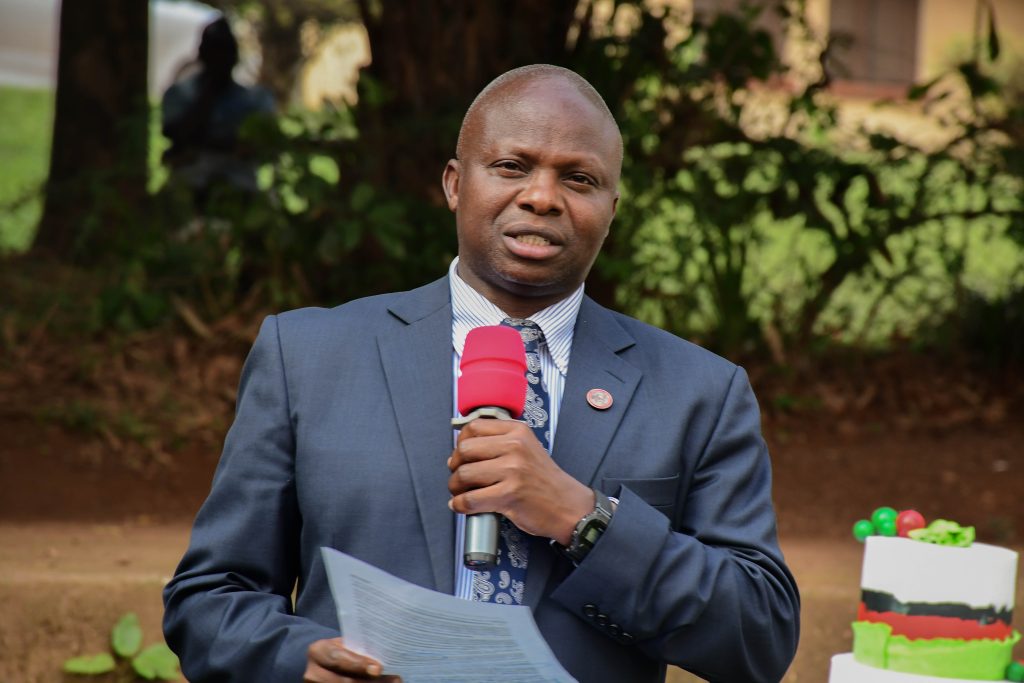
In his address, Associate Professor James Wokadala, the Deputy Principal of CoBAMS, emphasized the importance of networking and teamwork. “Today is a day for networking. This is a time to connect socially, celebrate, and reaffirm our commitment to serve Makerere University and, specifically, our College.”
He applauded staff for supporting the college’s teaching, learning, research, and student mentorship activities. He highlighted CoBAMS’ innovative initiatives, including the CoBAMS SACCO and the CoBAMS fitness club, which promote teamwork, wellness, and collegiality.
He thanked the event organisers for their efforts and acknowledged those who have supported administrative processes, such as fast-tracking promotion applications. He called upon staff to continue collaborating to serve Makerere University, the nation, and humanity.
Staff Appreciate the get-together moments
Charmed by the spirit of celebration, dance competitions amongst staff, and the choice of trending music, a significant number of staff stayed at the venue until the party came to a complete stop at 10:00p.m.

The following day (19th December 2025), the rejuvenated staff took to the College WhatsApp platform, and wrote messages, acknowledging being refreshed, feeling nice and young again. They requested the College leadership to plan for more of such engagements that promote teamwork, collegiality and good health.
Trending
-

 General7 days ago
General7 days agoPress Release: Semester II Set to Start 10th Feb, 76th Graduation Dates Confirmed
-

 Innovation7 days ago
Innovation7 days agoCall For Applications: Annual Innovation Commercialisation Award
-

 Agriculture & Environment7 days ago
Agriculture & Environment7 days agoCall for Applications: QCF Postdoctoral Research Fellowships
-

 Computing & IS1 week ago
Computing & IS1 week agoCoCIS CIPSD Short Courses Jan-Mar 2026
-
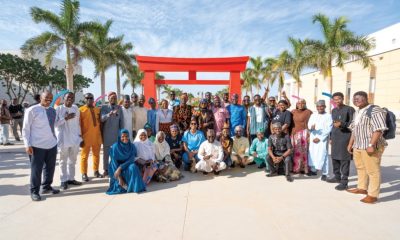
 General2 weeks ago
General2 weeks agoCall for applications: E-JUST TICAD8 African MSc. Scholarships
